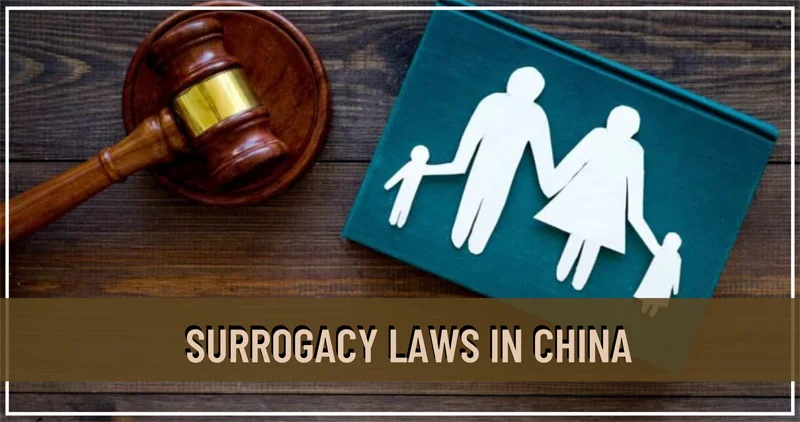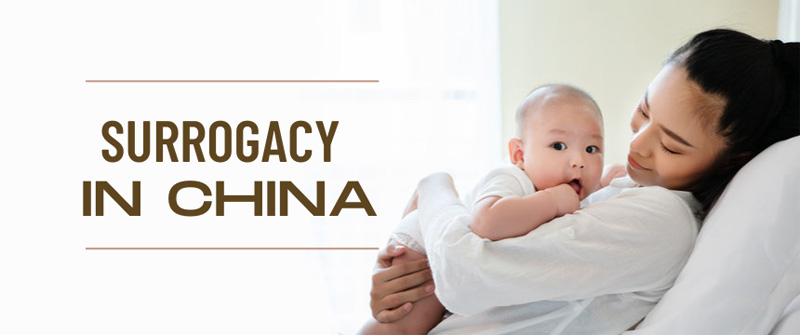Surrogacy laws in China are currently not so supportive for intended parents seeking to realize their parenthood dreams. While the government has put a complete ban on any kind of activity related to surrogacy, few surrogacy agencies in china are still offering the services via the grey market in the country.
China and its association with surrogacy arrangements in the past!
Gestational surrogacy has been used in China since the 1980s. Moreover, for the Chinese, the idea of surrogacy is not entirely new; the tale of “a man wants to borrow a woman’s belly to produce an infant” can be found in ancient China, where people wanted to bond with their future children.
On the other side, the need for surrogacy to address the issue of infertility dramatically increased after the first tube babies were successfully delivered at the Third Hospital of Peking University in Beijing in 1988 and the first surrogate baby arrived in China in 1996.
Additionally, the one-child policy increased demand for surrogacy laws in china. Due to the conventional belief that boys can perform more household tasks than girls and that having a girl child is “shameful,” people in China’s poorer regions are more likely to have boys than girls. Even though they have six or seven girls already, some people still have boy babies.
Some parents would like to have more children despite the fact that they prefer males because they believe their offspring will support one another after they pass away. However, because of government interference with the one-child policy and the restriction on the number of kids a couple could have, these desires were rendered impossible.
This is where many people believed that using a surrogate was their only option for expanding their family. That said, medical personnel is prohibited from carrying out any surrogacy procedures under Administrative Measures for Assisted Human Reproductive Technology.
This law does not, however, establish any precise requirements for those who enforce surrogacy or donors as per laws of surrogacy in China.

Introduction of the 1986 General Principles of Civil Law
So, is surrogacy legal in China? The 1986 General Principles of Civil Law do little to deter third parties, such as surrogacy agencies in china and individuals, who profit by taking advantage of childless intended parents and financially precarious surrogate mothers in china.
Moreover, the Chinese government has “turned a blind eye” toward surrogacy because of how complicated this matter is. There are still a number of surrogacy markets thriving underground, despite the fact that they physically dislike it because it complicates traditional morality and ethics laid down by the china surrogacy law.
Shenzhen is a prime example of this unregulated surrogacy industry in China. A decade after surrogacy was legalized in Shenzhen, a shadowy surrogacy market started to take shape.
Moreover, Infertility-related surrogacy services give many high-earning professional women the opportunity to become parents. That said, surrogacy regulation in China is still evolving generally with no surrogate mother-law in china. To reach the maturity of the entire system, the legal system still needs many improvements.
What do current surrogacy laws in China say?
Over the past three decades, surrogacy has become more popular and accepted across the globe. However, since the Chinese government does not support surrogacy, a shadowy surrogacy market has developed. So, we can say that surrogacy in china is getting harder and harder to stop, making government regulation extremely challenging.
First, administrative sanctions against the illegal surrogacy industry are ineffective, and surrogacy agencies in china earn sizable profits. Moreover, the medical institutions that develop assisted reproductive technology will be fined less than 30,000 RMB, according to the Specification of Human Assisted Reproductive Technology.
Besides, a fine of less than 10,000 RMB will be imposed on non-medical institutions that use human-assisted reproductive technology without authorization, according to the Regulations on the Administration of Medical Institutions. Also, the amount of fines for non-medical institutions is much lower than that of medical institutions because Regulations on the Administration of Medical Institutions were developed earlier.
As a result, non-medical institutions are more well-liked than medical ones. However, there is a risk that it will result in subpar medical safety. Weak administrative sanctions related to surrogacy laws in china cannot completely halt the growth of illegal organizations, leaving the Chinese government with a regulatory gap.
What does the future look like for surrogacy in China?
 Currently, it is challenging to draw the line between legal and illegal behaviour in terms of surrogacy in china.
Currently, it is challenging to draw the line between legal and illegal behaviour in terms of surrogacy in china.
The collection of sperm and eggs, the embryo’s development, and the delivery of the baby by the surrogate are all parts of the surrogacy procedure.
However, they view these actions as unlawful acts but lack punitive measures in accordance with Measures for the Administration of Human Assisted Reproductive Technology and Measures for Human Sperm Bank.
In other words, the government lacks the authority or justification to oversee those surrogacy agencies in china if they carry out activities unrelated to medical care. In addition, some agencies will set up websites to advertise surrogacy in china.
According to the National Security Department, they can only forbid pornography and gambling. It is challenging to convict those who engage in surrogacy because there are too many unknowns in the practice.
Also, there are gaps in the surrogacy legislation. The surrogates can lie to them or remain silent in that situation if the National Health Department discovers the surrogate mother while looking into shady agencies. Moreover, there are no procedures in place by the National Health Department to handle the situation or determine whether surrogates are telling the truth.
Additionally, there is currently no clear legal designation to address this issue if the eggs, sperm, or both are obtained from outside sources.
Why do you need the Surrogacy agency Kenya by your side?
The current situation regarding surrogacy in china is in complete chaos. So, we would advise you to connect with our surrogacy coordinators and take a detailed understanding of surrogacy laws in China beforehand.
If you feel comfortable, we would take you through other alternate options like surrogacy in Ukraine, Kenya, the USA, and Canada.


No Comments